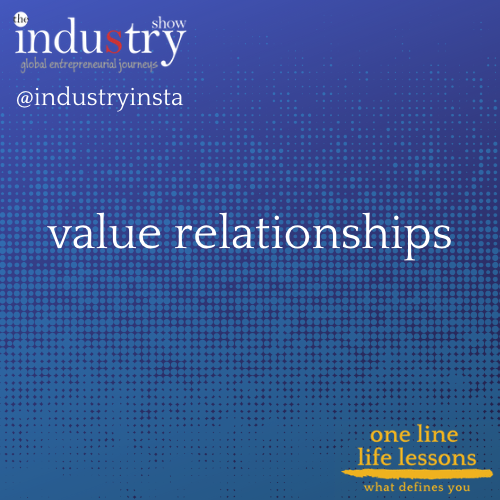Apr 15, 2023
Mukesh Aghi
Mukesh Aghi is a seasoned executive and thought leader with extensive experience in global business and policy. He is currently the President and CEO of USISPF (U.S.-India Strategic Partnership Forum), where he drives initiatives to strengthen U.S.-India bilateral relations and promote business collaboration between the two countries. Mukesh is known for his strategic vision and ability to navigate complex international environments, having previously served as the CEO of L&T Infotech and as the Chief Representative of the U.S. India Business Council (USIBC) in India. He is a respected voice on issues related to trade, investment, and economic development, and he is actively involved in fostering dialogue between governments and businesses. Mukesh holds an MBA from the University of Dallas and a Ph.D. in International Relations from Claremont Graduate University. His leadership and expertise continue to make a significant impact on U.S.-India relations and global business affairs.
One Line Life Lessons from Mukesh



Episode Highlights
- (0:00:00) – Nitin Bajaj welcomes Mukesh Agi to the show
- (0:00:12) – Mukesh was born in India but raised in Beirut
- (0:01:10) – US India Strategic Partnership Forum launched in 2017
- (0:04:52) – Mukesh wants to be remembered as someone who built partnership between two countries
- (0:06:06) – There are multiple challenges we face on a daily basis because our issues shift
- (0:07:31) – One of the biggest opportunities I see is technology cooperation between India and the US
- (0:09:01) – You’ve led and taken leadership roles at multiple companies
- (0:11:39) – Mukesh shares a few of his life lessons with us
Show Transcript
Transcript - Full Episode
Ntin Bajaj: (0:00:00) – Hey, everyone, welcome to the industry show. I’m your host, Nitin Bajaj. And joining me today is Mukesh Aghi:. Mukesh, welcome on the show.
Mukesh Aghi: (0:00:09) – Thank you.
Ntin Bajaj: (0:00:11) – Pleasure to have you here. Let’s start with the easy question. Who is Mukesh?
Mukesh Aghi: (0:00:19) – Well, that’s not an easy question. I think, you know, as an individual, you’re shaped by environment. And when you have environments which are global, you tend to be not a single entity, but global entity itself. So it’s a little complicated question you ask. But born in India, but raised in Beirut, lived in 16 other countries, so you basically embellish the culture, the languages and lifestyle of those countries.
Ntin Bajaj: (0:01:02) – And we’ll talk about this a little more. But you’ve had a fascinating career. I’d love to learn a little more about that. But before we go there, tell us, what is the US India Strategic Partnership Forum and more. So what’s the mission and the vision behind this?
Mukesh Aghi: (0:01:22) – Well, US India Strategic Partnership Forum, we launched this in 2017. And basically the objective of that organization is when you have two democracies, you have leadership, which changes, you have politicians, which change, your diplomats would change. You need an institution which carries a lot of stuff, memories and objectives to keep the two countries aligned in the direction you want these two countries to go forward. So our objective is geopolitical. It’s economic, it’s trade, it’s immigration. You measure us in multiple ways. We are not for profit. And the objective is to make these two countries partnership the most consequential for 21st century.
Ntin Bajaj: (0:02:25) – So true. Big agendas, each one of them. And I can’t think of anyone better than you to be leading this. So, congratulations and kudos. Give us a sense of, as we work around these initiatives you talked about, how do you measure your success? Give us a sense of the impact the organization has been able to drive.
Mukesh Aghi: (0:02:49) – See, our success is defined in multiple ways. Let us start first with on the trade side. The trade between India and the US is hovering around $170,000,000,000. Our mission is to take it to $500 billion. That means, what do we have to do going forward to achieve their objectives? We have around 232,000 indian students studying in the US. Our objective is to take this to 500,000. And why 500,000? Why not a million? Because it’s step number one. It’s important to understand that 70% of the students that come from India, they are in STEM program. And we have a massive gap of resources. And if we have 50% of them stay behind, they become day one tax paying citizen, contributing to the economy, to innovations and inventions in the country itself. And the remaining half will go back. They become goodwill ambassador of the US in India itself. So we can measure us in multiple ways. But you have to understand, what is our principles which drive the objective of this organization. We operate in two broad principles. Number one principle is that the economic prosperity of India is good for America and american companies. And the second principle is that a military strong India is good for regional stability. Now, what does it take to drive those two principles is our mission. And we keep on meshing ourselves in multiple ways to achieve those objectives through those principles itself.
Ntin Bajaj: (0:04:51) – Thanks for sharing that. Mukesh, I’m very curious to know you’ve had an illustrious career in tech. You’ve led many large tech firms. Why do this?
Mukesh Aghi: (0:05:06) – Well, I think you have to understand, in life, when you build your journey, you also have to think about what kind of legacy you want to leave behind. And in my case, I want to be remembered as someone who built the partnership between two countries and keep on driving the agenda between those two countries. And that’s critical. And the impact is tremendous. We are able to uplift millions of peoples. We are able to create thousands of hundreds of thousands of jobs. We’re able to bring hundreds of billion dollars of FDI investment into India. So I think the impact is tremendous and it will have a long term impact as we move forward.
Ntin Bajaj: (0:05:58) – I truly love it. As you go about achieving this personal mission and goal and uplifting millions of other people. What is the one big challenge you’re facing?
Mukesh Aghi: (0:06:10) – Well, I think there are multiple challenges we face. We live in a very fractured world. We live in a world which is constantly shifting. And what really happens is, especially in democracies, policy change, there’s lack of transparency, there’s a vested interest. And so we have to basically maneuver through all these landmines to keep on achieving objectives. The times we succeed and the times we fail, but we just dust ourselves, get up and keep on moving forward. And I would say that there’s no one single challenge. There are multiple challenges we face on a daily basis because our issues shift. We may be talking geopolitical, we may be talking nuclear, then we shift to AI or quantum computing or basic stuff like importing mangoes from India into the US. Their challenges, our basically, I would say the issues change every half an hour depending on what are the issues we’re trying to deal with.
Ntin Bajaj: (0:07:20) – The mango issue I’m personally vested in. So I’ll follow along that topic on the flip side of challenges come opportunities. And I know there are several that you’re tracking at any given point. Is there one you’re most excited about?
Mukesh Aghi: (0:07:40) – I think one of the biggest opportunity I see is technology cooperation between India and the US. When I say tech cooperation, let me just go back 20 years ago when India’s generic drug market started. And last 20 years, indian companies have basically taken almost 40% of the US drug market. That means they are bringing roughly $100 billion of savings by providing cheaper quality drugs to the US market. Now, when you move forward, I see the same role India plays in the defense side, because defense is becoming more and more software than just hardware. Could be cybersecurity, could be AI, could be quantum, could be space technology. And I think I am excited about the cooperation between two countries because US spends roughly trillion dollar a year on defense. And if we are able to bring in partnership substantial savings, it does have an impact on the US economy in a positive way. So I am excited about that cooperation.
Ntin Bajaj: (0:08:59) – That is a big one. Indeed. As we look forward in terms of these opportunities, I want to take a moment and look back in the rear view mirror. Across your career, across your personal life, there’s been lots of transitions. You’ve led and taken leadership roles at multiple companies. JD Edwards, IBM, L T, Infotech. I would love for you to share two key moments with us. One that exceeded your own expectations and became a success beyond your imagination. And on the other side, something that did not meet what you had expected it to be and maybe was a failure and became a lesson.
Mukesh Aghi: (0:09:43) – Well, I would say that let me start with the failure because we learn a lot from failures and success. When we launched university 21 global online universities where we set up a consortium of 20 plus universities to provide online MBA program. And we launched this in 2001 after spending almost $100 million building the whole platform, we were way ahead of time. That time the bandwidth was not available across the world itself and the concept of online was seen as more of a second class than a premier way of learning. And we kept on educating the masses, the market itself, what transformed was the COVID where people started leveraging Zoom and Webex and felt comfortable studying online. And I think 20 years later when you look at it, online has become the premier product. In fact, people prefer online than trying to go to a campus because you’re saving a lot of time and effort itself. So I think what I learned from that failure of that venture was that in life you have timings, you can’t be too early and you can’t be too late. You got to find the perfect time to provide the right value proposition. So that was a good learning. I think success wise, you look at JD inputs or Ariba, they were the market leader. Their market cap went up through the roof itself and there was a momentum which you built and you are able to transform the environment. So I think you learn from that. But we learn much more from failure than from success itself.
Ntin Bajaj: (0:11:39) – Okay, thank you again for sharing these moments with us. I’d like to bring us to my favorite part of the show, which is the one line life lessons. I’d love for you to share a few of your life lessons with us.
Mukesh Aghi: (0:11:55) – Well, there are a lot of life lessons. When I was in Beirut, civil war broke out and you are basically constantly dealing with every night, lack of electricity, lack of government and basically a war going on where constantly you have missiles and rockets landing in your environment. And what you learn there is that you value relationships because you are depending on each other and you cherish those relationship and in the process you lose some of those friends because of the war, but you keep on moving on. So one life lessons I’ve learned is you basically don’t take friends and relationship for granted. You value them, cherish them and move on with them.
Ntin Bajaj: (0:13:01) – Do you have other life lessons you want to share with us?
Mukesh Aghi: (0:13:04) – There are quite a few. Basically, you have to understand a smooth sea never makes a good sailor. And you need to have certain turbulences in life to make you more sturdier, make you more resilient and get you more focus. I do recall when I was building up JD Edwards, I was one of the first guy to land in Japan to sell application software. And this was more like in the early ninety s. And japanese concept of software was you’re trying to use a used toothbrush because they felt that custom software is much better. It took me a couple of years to convince them that this is the way to go forward and this is the way to succeed. And it took some time, but now look at Japan. There’s no custom software because they all have basically application software or platforms. So I think if you believe in your convictions and then stay on to it and keep on working on it, and you can change the culture, you can change the thinking because you believe what you have is the right value proposition. So I think staying focused on your conviction do matter. It may take time, but you will succeed eventually.
Ntin Bajaj: (0:14:42) – Mukesh, thank you so much for sharing your journey, your story and your life lessons with us. We really appreciate it. Again, congratulations on everything the team and you have accomplished and good wishes for a lot more because I know you have many, many missions to accomplish here.
Mukesh Aghi: (0:15:03) – Well, thank you very much. It’s a pleasure talking to you



